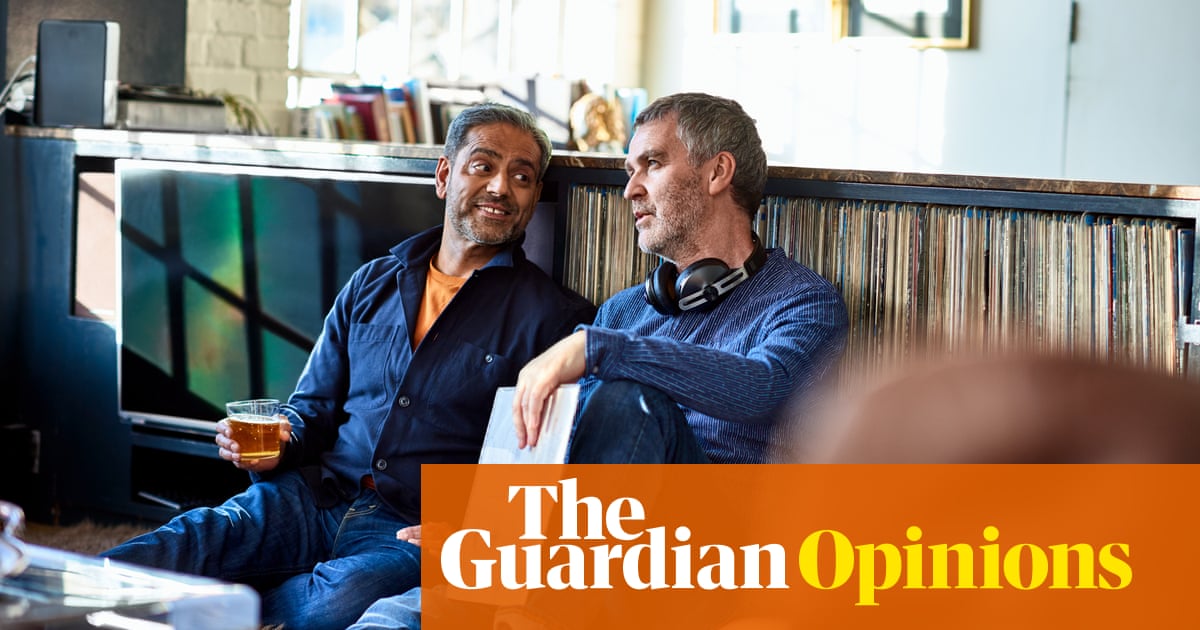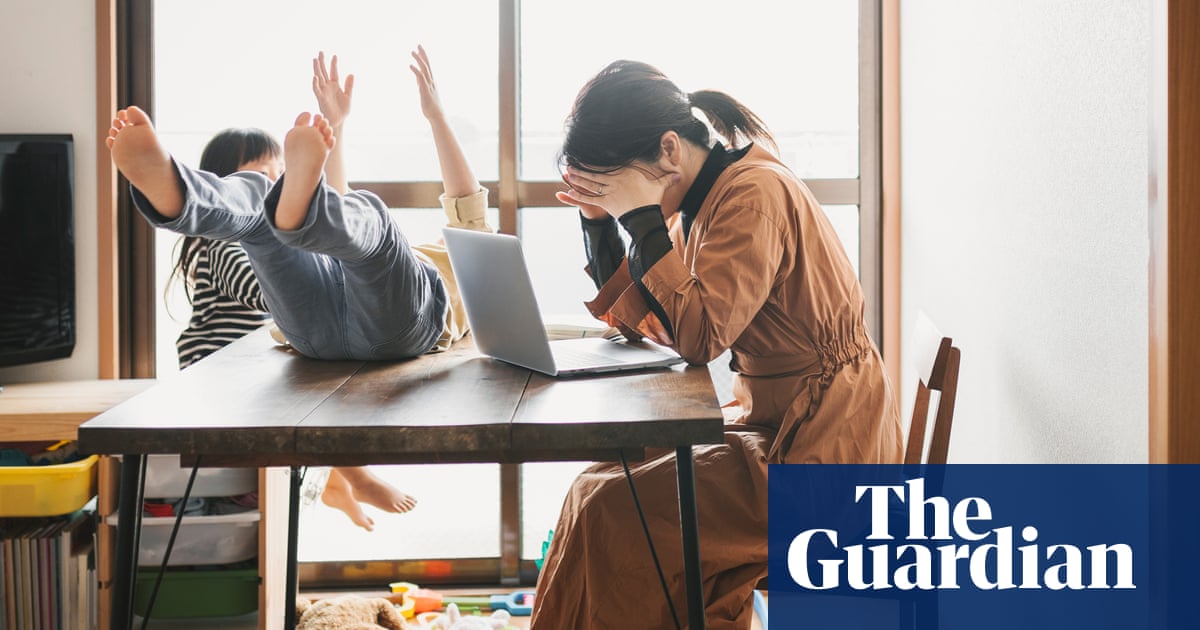
It was a sudden death that brought my old friends together, and in retrospect maybe that unlocked something. We hadn’t seen each other for years but the morning after the wake, it all came tumbling out over breakfast: worries about parents getting older, teenage kids, toxic bosses, career frustrations. Doubts were confessed, advice sought. It’s the stuff of female friendship down the ages, but the reason it stuck in my mind is that everyone round the table bar me was a man, and these definitely weren’t the conversations we used to have in the pub after work back in our 20s.
In both private and public life, so much of men’s once suppressed interior lives now seems to be rising to the surface. Think of the broadcaster Richard Coles’s beautiful memoir on grief, or the comedian Rhod Gilbert’s TV documentary on coming to terms with infertility, or David Baddiel’s exploration of caring for his father, who had dementia; of politicians from Labour’s Sadiq Khan to the uber-Brexiter Steve Baker talking candidly about struggling with their mental health, or of Prince Harry seemingly trying to build an entire new career out of raking through his dysfunctional childhood.
Even Channel 4’s harrowing recent documentary Evacuation, telling the story of Britain’s chaotic retreat from Afghanistan in 2021 through emotional interviews with those on the ground, portrayed male soldiers and airmen as only friends and family will previously have seen them: haunted by the people they couldn’t airlift out in time, voices breaking as they recalled children the same age as their own children caught up in the desperate scramble to escape. “We all cried,” said a padre, describing his attempts to help young paratroopers process a particularly grim day. For a film this exposing to be made with the Ministry of Defence’s full cooperation confirms a sea change in military attitudes to mental health, recognising that – as the veterans’ minister and ex-soldier Johnny Mercer has said of his own struggles with depression – “speaking openly helps” and normalising officers doing so makes it easier for everyone to follow suit.
I can’t know what it feels like, as a man, to watch any of this unfolding around me. But as a woman watching from the sidelines, it’s been both revelatory and often moving, triggering a desire to hear more. Which brings us rather awkwardly to the writer Caitlin Moran’s hotly awaited new book What About Men?, whose breezy argument that modern men just can’t share their problems or their deeper feelings like women supposedly do seems to be provoking something of an unexpected backlash.
She’s right, obviously, that plenty of men are struggling; that they’re still disproportionately likely to be homeless or addicts or in jail or to die by suicide, that toxic masculinity is worryingly rife in schools (as parliament’s women and equalities committee pointed out this week) and that too many men put off going to the doctor, especially for help with mental health. But it’s quite the leap from there to arguing breezily in Esquire magazine that “men themselves don’t talk about their problems, or give each other advice, at all”, or that millennial dads are muddling through with “no fathering memoirs; no pub discussions about the practicalities of being a father – how to plait hair; how to arrange a turtle-themed birthday party”, as if men never chatted on the school run or YouTube wasn’t full of dad tutorials on ballet buns or the plethora of charities and thinktanks and men’s support groups that have been springing up since the late 1990s (when the Fatherhood Institute, for example, first emerged) didn’t exist.
Clearly the myth that masculinity means being strong but resolutely silent still lingers, with an Ipsos Mori poll of men across four countries (including Britain) finding 38% sometimes avoided talking about their feelings for fear of seeming unmanly. But interestingly, it was men over the age of 35 – old enough to have taken a few emotional knocks, and to have grown out of testosterone-fuelled teenage bravado – who reported least pressure to keep a stiff upper lip. If so, then older men could be surprisingly well placed to model greater openness to Gen Zs, themselves arguably the most emotionally literate generation yet. Maybe I’m missing something, as a woman, in seeing grounds for at least a sliver of optimism here. But if so, this may be the one subject on earth on which I’d actually welcome a mansplanation.
Gaby Hinsliff is a Guardian columnist












